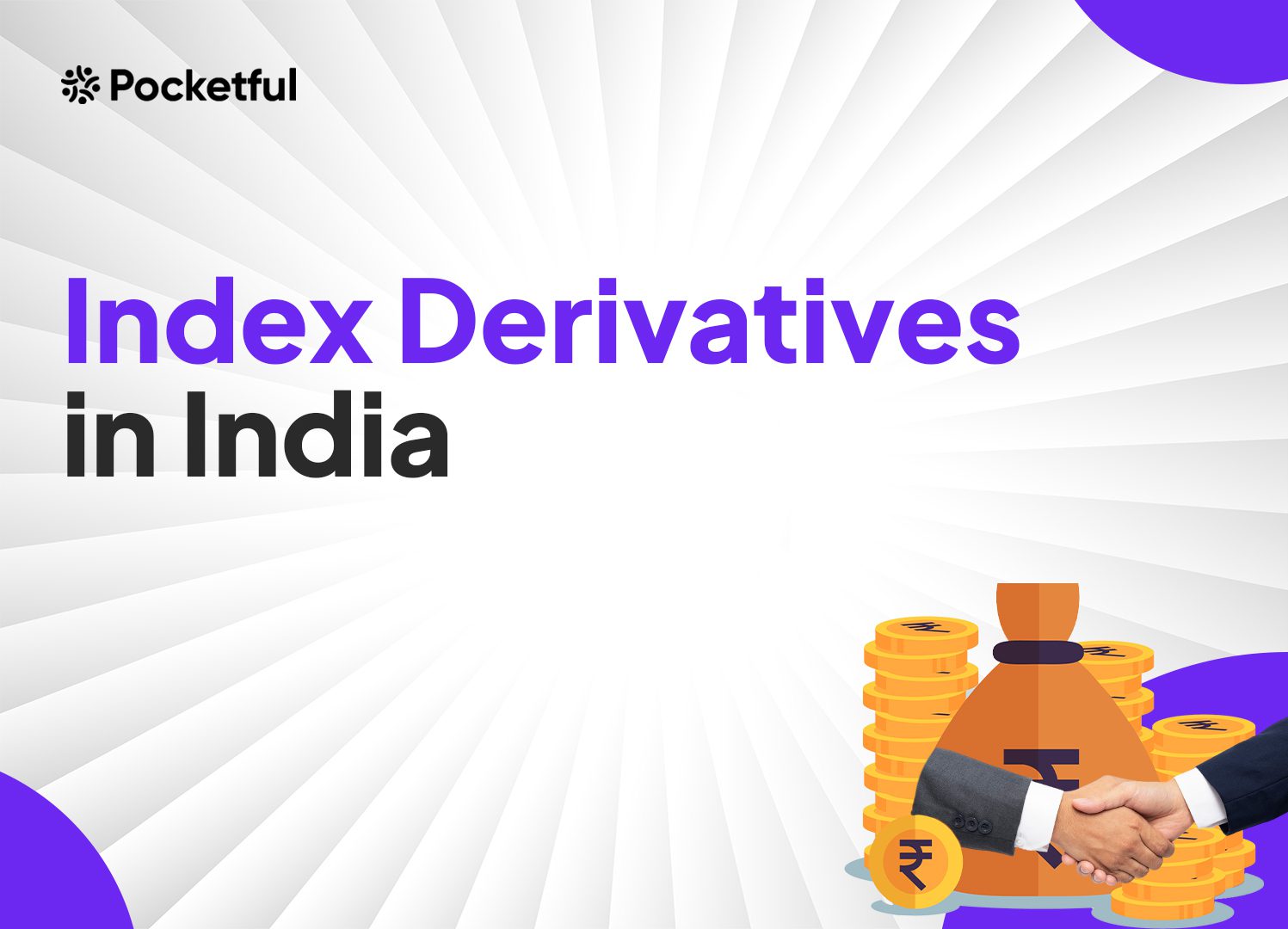| Type | Description | Contributor | Date |
|---|---|---|---|
| Post created | Pocketful Team | Jul-08-24 | |
| Put keyword | Nisha | Feb-25-25 | |
| Put keyword | Nisha | Feb-25-25 |
Read Next
- What is a Harami Candlestick Pattern?
- What is Average Traded Price in Stock Market
- What is MIS in Share Market?
- 7 Common Mistakes in Commodity Trading New Traders Must Avoid
- Brokerage Charges in India: Explained
- What is a BTST Trade?
- How to Do Algo Trading in India?
- What Is CMP in Stock Market?
- MTF Pledge vs Margin Pledge – Know the Differences
- Physical Settlement in Futures and Options
- List of Best Commodity ETFs in India
- Bullish Options Trading Strategies Explained for Beginners
- Best Brokers Offering Free Trading APIs in India
- Top Discount Brokers in India
- Best Charting Software for Trading in India
- Benefits of Intraday Trading
- What are Exchange Traded Derivatives?
- What is Margin Shortfall?
- What is Central Pivot Range (CPR) In Trading?
- Benefits of Algo Trading in India
- Blog
- index derivatives in india
Index Derivatives in India

Various asset classes are available in the financial industry, some of which are less dangerous than others. Derivatives are regarded as one of the most risky financial instruments. When you are unsure which stock to invest in, an index derivative can help you achieve a diversified portfolio of multiple shares.
In today’s blog, we shall describe various index derivatives available for trading in India and discuss their features, types, advantages and disadvantages.
Overview of Index Derivative
A derivative is a financial instrument whose value is determined by an underlying asset, usually a market index like the Nifty 50, Bank Nifty, etc. Index derivatives are special types of derivatives which only have indices as their underlying asset. These derivatives are traded on the stock exchange. An investor can invest in a group of assets that the index reflects at a time with the help of index derivatives, eliminating the need to purchase each security separately. Futures and options contracts are two types of index derivatives available for trading in India. Both are explained below:
1. Options Contract: On a specific day, known as the contract’s expiration date, option buyers are granted the choice, but not the obligation, to purchase or sell the underlying securities under this agreement. An investor must pay a premium to the contract seller in order to buy the contract.
2. Future Contract: It is an agreement to purchase or sell the underlying index at the agreed-upon price on the contract expiration date. These are binding agreements. Usually, cash settlements are used to fulfil these contracts rather than actual share deliveries.
Index Derivatives in India

In India, the following market indices offer index derivatives:
- Nifty 50: It represents the weighted average of the top 50 businesses listed on the National Stock Exchange. It has both futures and options available for trading. It has a lot size of 25.
- Nifty Bank: It comprises the most liquid and large Indian Banking stocks. It consists of 12 companies listed on the National Stock Exchange. Both futures and option contracts are available for investors to trade. The derivatives have a lot size of 15.
- Nifty Financial Service: This index contains the top 20 companies from the financial sector. It has both futures and options available for trading. It has a lot size of 40. Its lot size will be revised to 25, with the first monthly expiry of July 2024 and the first weekly expiry of 6 August 2024.
- Nifty Midcap Select: It aims to track the performance of a focused portfolio of 25 stocks within the Nifty Midcap 150 index. It has a lot size of 75. Its lot size will be revised to 50, with the first monthly expiry of July 2024 and the first weekly expiry of 5 August 2024.
- Nifty Next 50: It represents the 50 companies from Nifty 100 after excluding the Nifty 50 companies. It has a lot size of 10.
Features of Index Derivative
Index derivatives are complex; therefore, let us understand their features in detail.
- The returns of index derivatives are based on the performance of underlying assets.
- The contracts are in standard format, making it convenient for investors to buy and sell them.
- These contracts provide high liquidity to investors; hence, they can buy and sell at any time during trading hours.
- Various brokers offer margin facilities to investors trading in index derivatives, typically buying these contracts by paying up a small portion of the contract value.
- Investors can protect their portfolios from unexpected volatility through hedging with the help of these contracts.
Advantages of Index Derivative
Index derivatives offer various benefits given below:
- An investor can hedge their cash market position by using index derivatives.
- Index derivative allows you to reduce the risk by diversifying the portfolio, as the underlying asset has several stocks.
- You can earn huge profits by paying a small margin amount upfront.
- The transaction cost for trading in index derivatives is lower than that of individual stocks.
Disadvantage of Index Derivative
Index derivatives are risky financial instruments and have the following disadvantages:
- As the value of derivatives is derived from underlying market-linked securities, they can sometimes be volatile.
- Derivatives provide leverage, which can magnify losses.
- Almost all major index derivative contracts possess high liquidity, but some strike prices have less liquidity, making it difficult for an investor to take or exit their positions.
- Trading in index derivatives is a complex process as the prices of the contract are also affected by factors like gamma, beta, delta, time value of money, etc.
Participants in the Derivative Market

Market participants use index derivatives for various purposes. Different types of market participants are listed below based on the purpose for which they use derivatives.
- Hedgers: Some traders use index derivatives to hedge their portfolios against unexpected changes in the price level of the underlying asset.
- Speculators: These types of traders aim to earn profit from the change in the price level of the index; they typically make long or short positions to earn profits.
- Arbitrageurs: These are conservative traders who typically try to exploit the opportunity to earn profit from the difference in price between derivative contracts and indexes.
- Investors: They invest in the index using leveraged positions without buying the underlying asset directly to earn profit.
Read Also: What is Commodity Market in India?
Conclusion
To sum up, investing in index derivatives gives you a chance to diversify your holdings and shield them from market risk, but using derivative instruments also necessitates having a solid awareness of risk and the complexities that surround it. Additionally, whenever you are making an investment, be careful to discuss your risk tolerance with your investment advisor.
Frequently Asked Questions (FAQs)
What are the risks associated with investing in index derivatives?
Market risk, margin calls due to leveraged positions, time decay for option traders, and other risks are associated with index derivatives.
Name the index derivative in which we can trade.
Nifty 50, Nifty Bank, Nifty Financial Services, Nifty Mid Cap Select and Nifty Next 50 offer index derivatives we can trade in India.
What do you mean by margin call in the case of index derivative trading?
A margin call occurs when the broker requests additional funds or securities because the margin value in your account is less than the minimum amount required by the broker.
Can a beginner invest in index derivatives?
Yes, you can begin investing in index derivatives, but you should ensure that you understand concepts such as the time value of money, delta, gamma, etc.
What are the two types of derivative contracts we can trade online?
Futures contracts and options contracts are the two categories of derivative contracts we can trade-in.
Disclaimer
The securities, funds, and strategies discussed in this blog are provided for informational purposes only. They do not represent endorsements or recommendations. Investors should conduct their own research and seek professional advice before making any investment decisions.
Article History
Table of Contents
Toggle